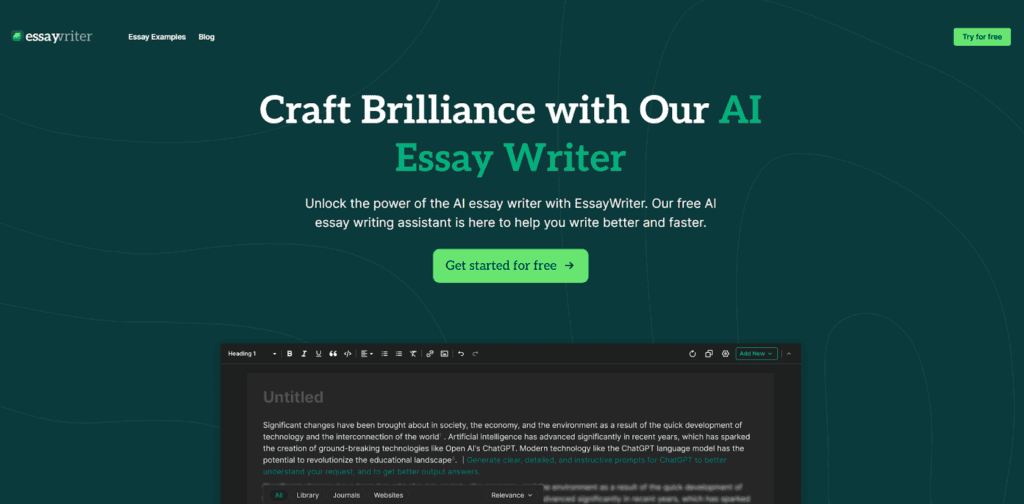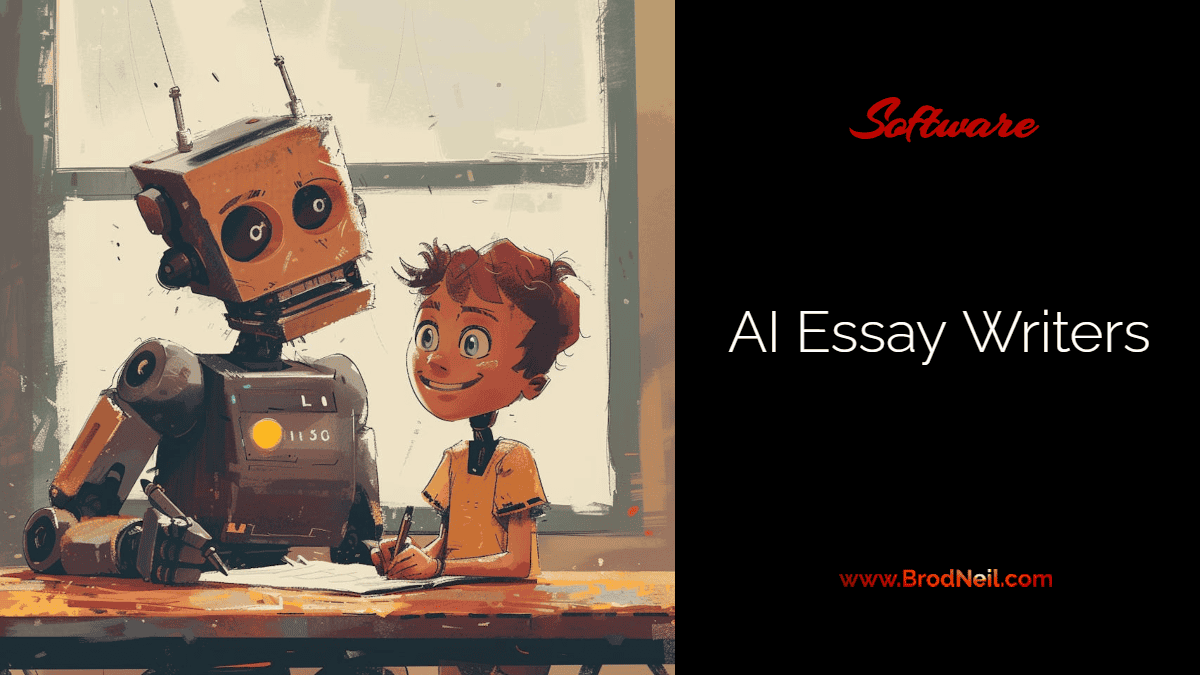In the journey of academic advancement, the art of essay writing stands as a cornerstone reflecting a student’s understanding, critical thinking, and ability to convey complex ideas effectively. However, mastering this art entails challenges ranging from idea generation and research to drafting and polishing. In this digital age, where technology influences every aspect of life, academic writing is no exception. The integration of Artificial Intelligence (AI) into the writing process has opened new avenues for students, teachers, and researchers alike to refine their writing practices, making the daunting task more manageable and efficient.

The Role of AI in Academic Writing
The advent of AI essay writers represents a pivotal shift in how academic papers are crafted. These tools are designed not only to assist in the mechanical aspects of writing but also to augment the creative and analytical process. Among the myriad of options available, one such tool that has garnered attention for its comprehensive capabilities is EssayWriter. This AI-powered assistant is engineered to alleviate the stress involved in essay writing by providing a suite of features aimed at enhancing every phase of the writing process.
Understanding the Mechanics: How EssayWriter Enhances Writing
Step 1: Ideation and Drafting
The initial step of any writing process involves brainstorming and laying down a preliminary draft. This phase is often marred by writer’s block and uncertainty about where to begin. AI tools like EssayWriter offer an environment conducive to idea generation. With prompts and suggestions based on the essay topic, these tools help in constructing a coherent structure for the essay right from the start.
Step 2: Research and Citation
An essay’s credibility is significantly bolstered by the inclusion of authoritative sources. Conducting research and ensuring proper citation, however, can be time-consuming. EssayWriter simplifies this aspect with an integrated academic database, allowing users to find relevant information and automatically generate citations in various styles, thereby ensuring the essay’s integrity and reducing the manual workload.
Step 3: Refinement and Exportation
The final touch involves revising the content to polish and perfect it. AI editing tools within EssayWriter provide real-time suggestions for improvement—be it grammar, style, or structure—enabling writers to elevate the quality of their essays. Additionally, the ability to export the finished product in popular formats adds to its convenience and practicality.
The Spectrum of Assistance

For Students
The primary beneficiaries of AI essay writers are undoubtedly students. Confronted with multiple assignments, tight deadlines, and the pressure to achieve academic excellence, students find these tools an invaluable ally. From providing unique content to ensuring essays are well-structured and formatted, AI assistants help students navigate the complexities of academic writing more smoothly.
At EssayWriter, students will also find a blog brimming with expert insights, actionable tips, and creative tactics aimed at refining their essay crafting skills, advancing their writing proficiency, and improving their educational outcomes. This includes a comprehensive guide on whether teachers can tell when you use ChatGPT.
For Teachers
Teachers, too, can leverage these AI tools to devise engaging content for classroom discussions or to provide examples of well-structured essays. Beyond aiding in content creation, these tools offer a means to lessen the workload, allowing teachers to focus more on teaching and less on the mechanical aspects of writing.
For Researchers
Research writing demands a higher degree of precision and depth. Here, AI writing assistants can streamline tasks such as literature reviews, data synthesis, and findings’ presentation. By facilitating efficient research and writing processes, these tools empower researchers to produce more substantive and impactful work.
Ethical Considerations and Originality
A notable concern that arises with the use of AI in essay writing is the question of originality and plagiarism. Tools like EssayWriter address these concerns head-on with built-in plagiarism detection systems, ensuring the content created is not only high quality but also original. This commitment to maintaining academic integrity while leveraging AI’s strengths is what sets apart reliable AI writing assistants from mere content generators.
The Path Forward: Embracing AI with Critical Thought
The integration of AI into academic writing heralds a new era of efficiency and creativity. However, it’s crucial for users to approach these tools with a balanced perspective. While AI can significantly aid the writing process, the essence of academic writing—critical thinking, argument development, and personal insight—remains a distinctly human endeavor.
Conclusion
In conclusion, AI essay writers like EssayWriter redefine the landscape of academic writing by offering a blend of convenience, efficiency, and support. Whether it’s through aiding in research, facilitating idea generation, or ensuring the mechanical accuracy of writing, these tools are transforming the way essays are written. However, the ultimate excellence in academic writing comes from an integration of these advanced tools with the writer’s own critical thinking and analytical skills. Embracing AI assistance in academic writing, therefore, is not about replacing human insight but enhancing it to achieve brilliance in academic pursuits.

